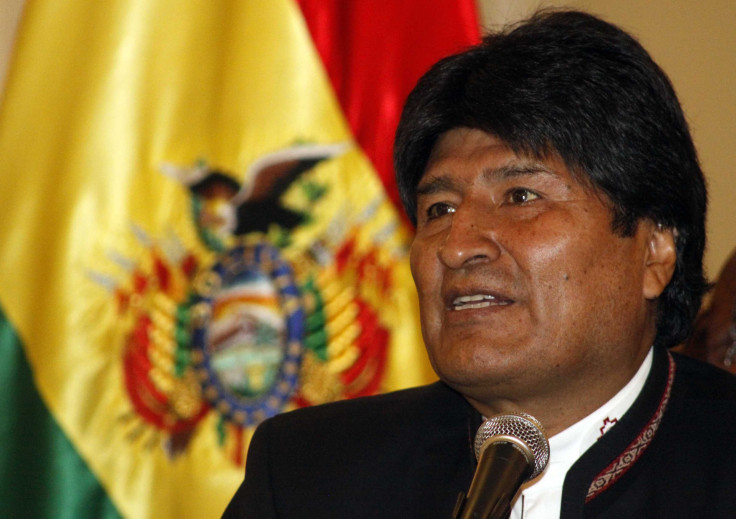Bolivia Referendum 2016: Constitution Could Change As President Evo Morales Attempts To Extend Term Limits

As Bolivians prepare to vote in a constitutional referendum Sunday that could allow current President Evo Morales to stay in power until 2025, violence and accusations of corruption have marred campaigning leading up to the vote. Morales, who was heralded as savior of Bolivia's indigenous people when he came to power 10 years ago, was recently accused of “influence peddling” by his rivals while a violent protest left six people dead when protestors set fire to a building in La Paz Wednesday.
If Morales succeeds in changing the constitution Sunday, it will roll back elements of the last constitution from 2009, which stated that sitting presidents can only run for reelection once. While Morales was first elected in 2005, the changes did not consider previous terms as part of the limits. If the changes fail, Morales will not be eligible for reelection in 2019.
However, Morales, as being the first president of Bolivia that was a native and doesn’t have European roots, is wildly popular among poor and indigenous populations. A win for him would extend his brand of socialism under which he has nationalized industries, including oil and gas, to finance welfare programs that have slashed poverty. But attempts to extend his rule have been met by severe opposition from the conservative opposition party, which claims that Morales hopes to cling to power well past 2025.
#EvoMorales pleads to supporters to vote yes in #referendum to continue economic stability #Bolivia @telesurenglish pic.twitter.com/plXszokOhx
— Dimitri O'Donnell (@dimitri_teleSUR) February 17, 2016
Despite the current leader’s popularity, a recent poll conducted by Equipos Mori for the Bolivian newspaper El Deber shows that support for the amendment was waning. Forty percent of respondents in a survey of 2,368 people said they would vote against the proposal, up from 37 percent the week before, while 40 percent said they would vote for the change, according to a Reuters report.
It’s also been suggested by Morales that the U.S. government is helping fund the “no” campaign, according to a report by Telesur TV, a Venezuela-based TV station. “I am not sure whether (the money) is sent by the corrupt criminals who fled to the United States, or by the U.S. State Department,” said Morales, referring to the Bolivian opposition leaders that have found shelter in the United States.
Diplomatic cables leaked by wikileaks in 2015 showed plans by the U.S. government in 2008 to either assist in the toppling of the Evo Morales’ government or allow his assassination.
© Copyright IBTimes 2025. All rights reserved.






















